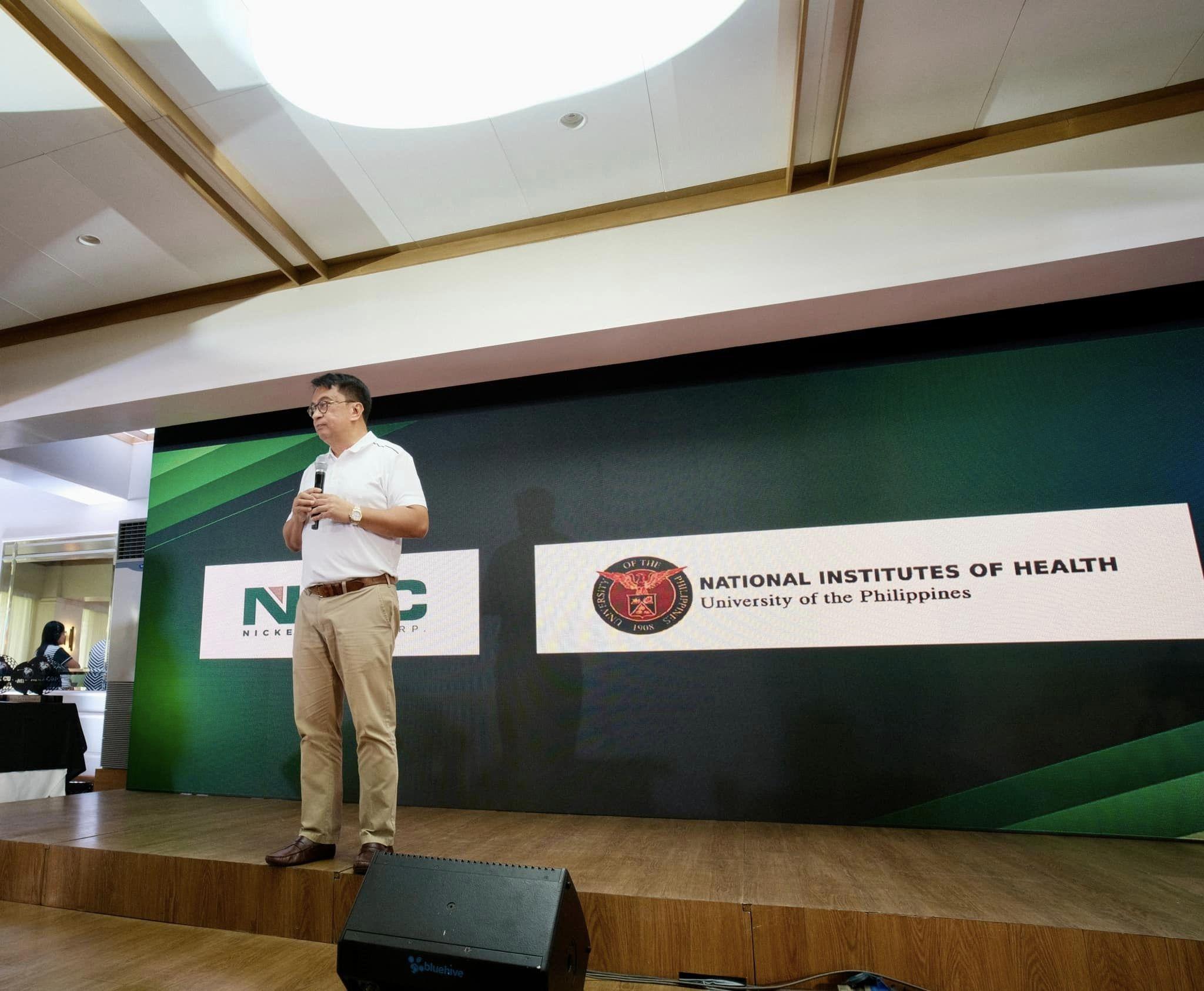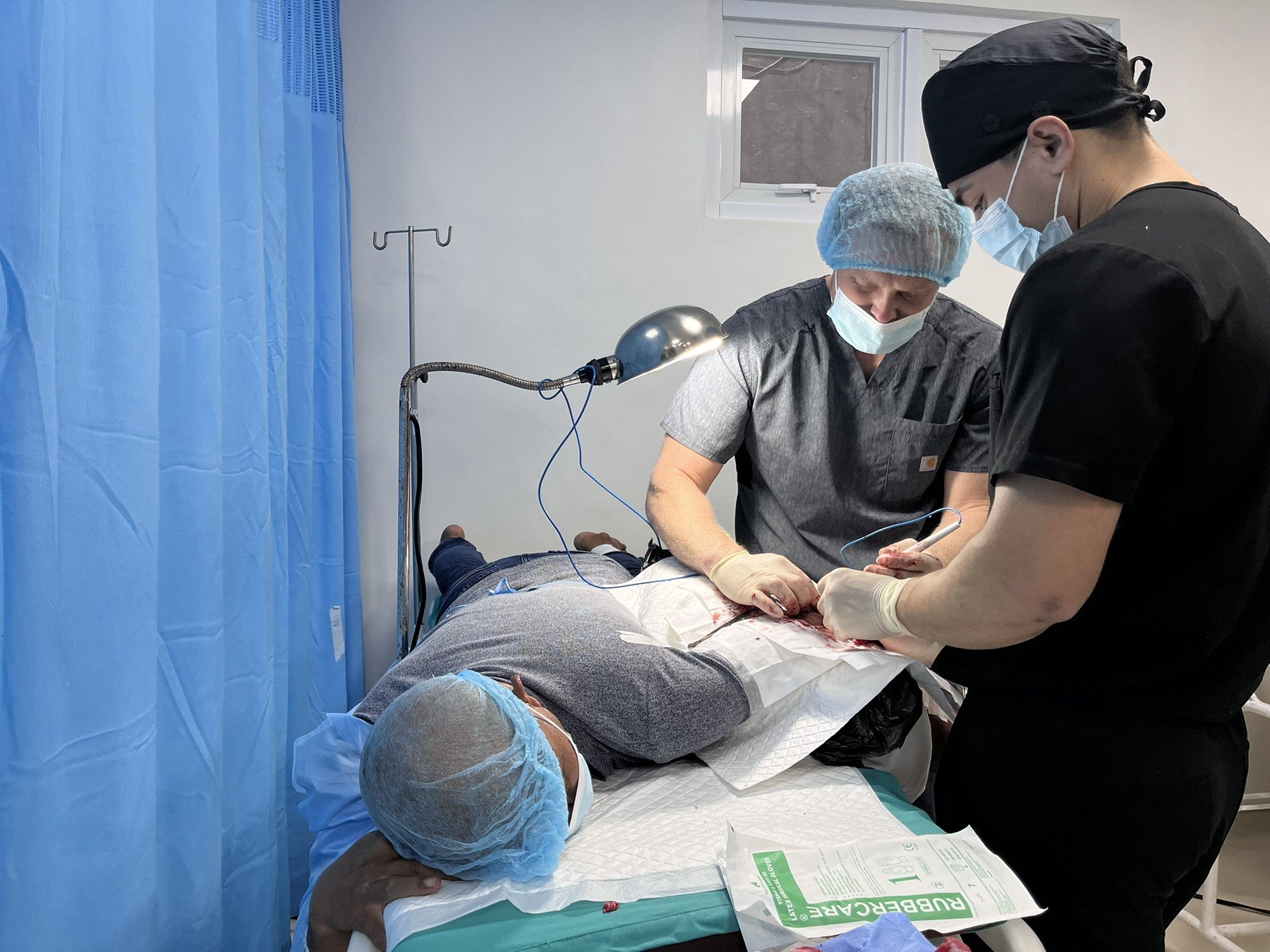Thus, RTNMC and CBNC, both affiliates of Nickel Asia Corporation (NAC), have taken their Enterprise and Livelihood Program (ELP) under their Social Development and Management Program (SDMP) very very seriously.
Thus, RTNMC and CBNC, both affiliates of Nickel Asia Corporation (NAC), have taken their Enterprise and Livelihood Program (ELP) under their Social Development and Management Program (SDMP) very very seriously.
And for the past years, the two companies did not fail to continue in providing enterprise and livelihood to its host and neighboring communities.
The ELP concentrates on three aspects that include people, community and economics, which are meant to complement each other to attain certain goals and objectives.
This year, RTNMC and CBNC continue to prove to their stakeholders that they are committed in providing sustainable and quality programs.
As early as January this year, the two mining firms turned over another SDMP livelihood assistance amounting to P1.5M to one of their partner communities, the Barangay Inogbong, a small community in the Municipality of Bataraza.
Inogbong’s major livelihood and income only came from farming, fishing and livestock raising.
The residents of Inogbong came up with the idea of establishing medium scale enterprises that can attend to the needs of the majority of Bataraza considering that they are adjacent to the municipality with lots of opportunities growing in.
The P1.5M SDMP fund is allocated for three different livelihood programs namely Grocery and Farm Inputs Trading Center, Start-up capital for Barangay Enterprise, and Halal Meat and Trading Center.
These programs aim to provide quality products, establish accessible trading center within the municipality of Bataraza, and create sustainable and independent people’s organization (PO).
They are also meant to provide additional income for the people of Bataraza, to enhance POs performance and independency and to advance the market capability of the municipality and its barangays.
Marycris Alba, the newly appointed Barangay Captain of Inogbong, expressed gratitude for the financial support given by RTNMC and CBNC saying that this could help uplift the lives of their people.
“Malaki ang maitutulong ng Enterprise and Livelihood program para mapabuti ang buhay namin sa Inogbong dahil dito mabibigyan ng kabuhayan ang aking mga kabarangay,” said Alba.
Ernesto A. Llacuna, CBNC Community Relations (ComRel) Manager, said the program is a fulfillment of the company’s commitment to practice responsible mining by sharing the profit to the communities.
“Through the livelihood program, the people of Inogbong will be given the opportunity to earn to improve their living and to have a decent life,” said Llacuna.
For his part, Reynaldo M. Dela Rosa, RTNMC ComRel Manager, said the two companies will continue to provide assistance not only to their host communities but to other barangays in Palawan, where they operate.
“RTNMC and CBNC are committed to really help people so that they could also be benefited from the operations of the two mining firms,” said Dela Rosa.
COFFEE PROJECT GOES CASH-CROPPING
Another flagship livelihood project of RTNMC and CBNC is the Coffee Plantation Development Project (CPDP), which is also being implemented through their Social Development and Management Program (SDMP).
The CPDP started two years ago where eight barangays initially engaged in the project namely Barangay Iwahig, Ocayan, Sandoval, Igang-Igang, Taratak, Tabud, Tarusan and Sapa, as they foresee the fruitful manifestation of the venture.
The plantation process began on October 2015 and it is running up to date. In the span of two years, coffee trees have survived the intense effect of climatic condition of the area as well as the terrestrial activities occurring within the plantation.
Its progress has been steady as the project runs consistently, the technical demand especially the maintenance activities on the plantation is beyond conventional.
Recently, several trainings, seminars and educational programs were conducted to maximize the efficacy of the beneficiaries especially the technical point person per cooperative.
Stakeholders involved under this project apparently lack subsistence source of income amidst the process.
Decisively, the Southern Palawan Farmers Federation Cooperative (SOPAFFCO) and the management committee came to an open meeting and have concurred to conduct trainings on the stakeholders and highlighted it as “Gulayan sa Kapehan”.
Last April 8, 2017, the training on Organic Agriculture was held, attended by 80 participants particularly the technical point persons coming from different barangays involved in the coffee plantation development project.
Edwin Nerva, Community Relations Coordinator of RTNMC and CBNC, was the resource speaker in the training where he lectured and gave workshops on Conventional Farming and Agricultural Practices.
Nerva asserted that most participants lack information on basic agriculture, which resulted on pre-assessment as to why he conducted conventional farming.
“It is a good way of promoting quality life and sustains local practices by giving livelihood programs and could therefore take part in promoting sustainable development,” said Nerva.
The training went out well and a demonstration was scheduled, which will be conducted by the participants to assess the implication of the workshop.
The training on Organic Agriculture has reflected positively on the farmers, as they apprehended that it is a way of making a good source of living in the midst of the project.
The contractors and local farmers have seen a great potential on the coffee plantation, in terms of crop propagation and production of organic products.
In partnership with VIEVA Phils or Vegetable Importers Exporters Vendors Association Philippines, the project on “Gulayan sa Kapehan” is still in a good run.
Likewise, VIEVA Team conducted lectures and training last April 9, 2017 held at Racub, Bataraza, Palawan.
Lilia Cruz, VIEVA Phils Chairperson, led the discussion on matters regarding potential agricultural crops for each barangay.
After the training, VIEVA Phils conducted an ocular and site visit on the target coffee plantation and performed soil analysis to determine what crop is suitable for the area.
“This is beneficial for both coffee trees and agricultural crops,” said Cruz.
Recently, coffee trees on every plantation began producing numerous white, jasmine-like flowers indicating its coming yield.
This does not only show good farming practices, but also shows effort and dedication of the farmers.
Who else knows of a mining community having this kind of livelihood program? Who says that the mining industry and agriculture will never coexist?



